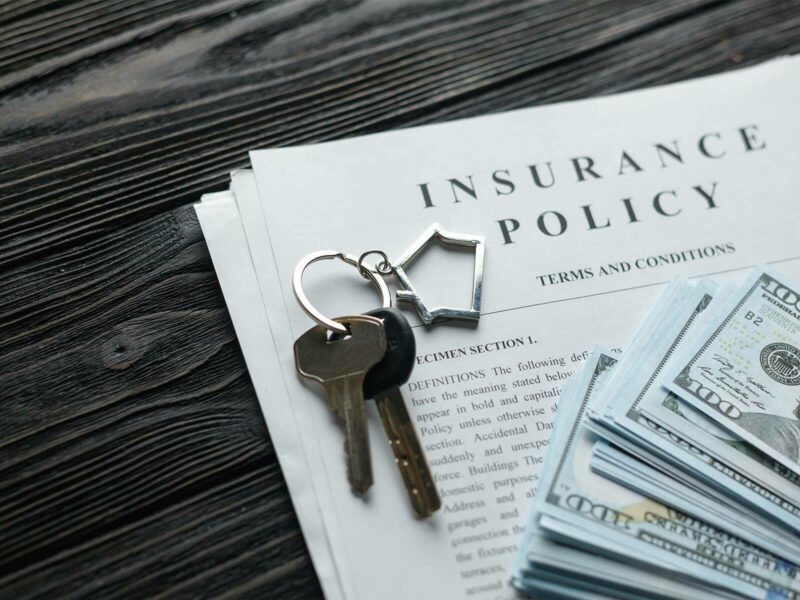Article Excerpt
How do you pay off a mortgage early? Why is the payoff amount higher than the remaining balance? How much could you save? Are there disadvantages?
Most primary home mortgages have terms of 15 or 30 years. This means that, from the date you close on the purchase, you will make payments to the mortgage lender for that period of time. After that, the lender will release their lien on the property and you will own your home “free and clear.” You will still have other expenses related to the property, like property taxes, but you will be finished with mortgage payments.
If you’re in a position to responsibly pay off your mortgage early, or faster than the minimum due each month, you’re in a good spot financially. Let’s explore the most common questions when homeowners reach this stage.
Can I pay off my mortgage early without a penalty?
The first question to ask is whether you can pay off your mortgage before the end of the loan term without a penalty. Some loans include a prepayment penalty, meaning that you must pay extra to pay early. Very few residential mortgage lenders include this, but you should check your loan paperwork and talk to your lender to make sure.
» READ MORE: What are Prepayment Penalties and Why do They Exist?

Photo by Karolina Grabowska on Pexels
How to Pay Off Your Mortgage Early
Rather than give you budgeting tips on how to make extra payments, let’s discuss how you actually go about making the early payoff to your mortgage servicer.
Step 1: Know your payoff amount. This is the remaining principal balance of your loan. You can request a payoff statement from your servicer by simply calling their customer service phone number or sending an email. Remember that your mortgage servicer (the company that collects your monthly payments) may be different from the lender you closed the loan with. If in doubt, check your monthly mortgage statements. If you’re still not sure, call or email your loan officer and ask for information on how to contact your servicer.
Be prepared with your loan number which will be found on your monthly statements. You may receive these as physical mail or as electronic mail.
Step 2: Schedule a wire transfer. First, remember that mortgage scams exist. They should be taken seriously. Ensure the person you’re talking to actually represents the company servicing your loan. They will assist you in setting up a funds transfer through your bank.
» READ MORE: Types of Mortgage Scams and How to Avoid Them

Photo by RDNE Stock project on Pexels
Why is my mortgage payoff amount higher than the balance?
In some situations, the payoff amount that you get from your lender is not the same as the balance of the loan on your most recent statement. How much higher the mortgage payoff is than the balance may depend on a few things:
Interest for the current month: In many mortgages, your payment consists of principal for the current month and interest for the past month. Your July 2023 payment, for example, would cover principal for July and interest for June. If you want to pay off your mortgage on July 15, you would still owe interest for the period from July 1 to July 14. Your payoff amount will reflect this.
Escrow adjustments: If your typical monthly payment includes money that the lender places in escrow for property taxes or homeowner’s insurance, the lender may need to make adjustments to the amount in that account.
Other fees, charges, or credits: You might be subject to certain fees if you pay off your mortgage early, such as a prepayment penalty. Prepayment penalties are very rare on primary residential mortgages. Your lender must disclose any of these fees to you, and they should have done so before you even closed the loan.
What happens after I pay off my mortgage?
Once you have paid the full payoff amount, your lender has several obligations to you:
Statement of payoff: You should receive a letter or statement from your lender indicating that you have paid the loan in full.
Cancellation of note: The lender should cancel the promissory note you signed when you closed on the loan.
Release of lien: At closing, you signed a deed of trust that gave the lender a lien on your home and the right to foreclose if you defaulted on your payments. The lender must file a document known as a release of lien with the county clerk. This makes your full payment of the mortgage part of the public record.
Refund of escrow: The lender must return any escrow funds that are still in its possession after the final payoff. Federal law states that the lender must do this within 20 business days of the date you made the final payment.
What You Have to Do When You Pay Off Your Mortgage
As the homeowner, you also have a short to-do list after you pay off your mortgage:
Notify your homeowner’s insurance provider: Without a mortgage, no one will be requiring you to carry homeowner’s insurance. It’s still a very good idea to have it, though. Be sure that your insurance company removes the lender’s name from your policy. That way you can be sure that any benefits go to you, not the lender.
Pay your own bills: If your lender kept an escrow account to pay for property taxes and homeowner’s insurance, remember that these are now your responsibility. Make sure your insurance provider and local tax assessor’s office know to send bills and statements to you.
» READ MORE: FAQs on Home Escrow Accounts
- Check your credit report: Wait at least a month or two after the payoff date, and then check your credit report to see if it shows that you no longer have a mortgage. If it still shows that you owe on the mortgage, request changes to your credit information through the credit bureau you’re looking at.
How much interest will I save if I pay off my mortgage early?
Paying off your mortgage early means making bigger payments now with the goal of saving money in the long run. For this example, let’s suppose you have a mortgage with:
An original balance of $400,000;
A term of 30 years; and
A 6% interest rate.
The following table shows what you would expect to pay, in total, if you paid the mortgage over the full 30-year term, versus if you paid it in full early.
|
Payoff Amount |
Total Payments Made |
Total Interest Paid |
Savings on Interest |
|
|---|---|---|---|---|
Payment over 30 Years |
N/A |
$863,352.76 |
$463,352.76 |
N/A |
Payment 5 Years Early |
$124,048.35 |
$843,508.98 |
$443,508.98 |
$19,843.78 |
Payment 10 Years Early |
$216,014.34 |
$791,582.85 |
$391,582.85 |
$71,769.91 |
Payment 15 Years Early |
$284,195.38 |
$715,871.76 |
$315,871.76 |
$147,481.00 |
Payment 20 Years Early |
$334,742.90 |
$622,527.15 |
$222,527.15 |
$241,095.61 |
The next table shows you much you can save by paying various extra amounts every month:
|
Monthly Payment Amount |
Time to Full Payoff |
Total Payments Made |
Total Interest Paid |
Savings on Interest |
|
|---|---|---|---|---|---|
Scheduled Payment |
$2,398.20 |
30 yrs |
$863,352.76 |
$463,352.76 |
N/A |
Extra $500 |
$2,898.20 |
19 yrs, 7 mos |
$680,717.14 |
$280,717.14 |
$182,635.62 |
Extra $1,000 |
$3,398.20 |
14 yrs, 11 mos |
$605,069.09 |
$205,069.09 |
$258,283.67 |
Extra $1,500 |
$3,898.20 |
12 yrs, 1 mo |
$562,439.08 |
$162,439.08 |
$300,913.68 |
Extra $2,000 |
$4,398.20 |
10 yrs, 2 mos |
$534,816.48 |
$134,816.48 |
$328,536.28 |
The Disadvantages of Paying Off a Mortgage Early
This could mean paying the entire remaining balance of the loan as a lump sum. It could also mean paying it off faster than the 15- or 30-year schedule by paying extra each month. Although it’s rarely a bad thing to pay off your mortgage, you could be missing out on other opportunities:
Loss of the tax deduction: Mortgage interest is tax-deductible, so paying your mortgage according to the loan schedule could save you money on your taxes.
Extra present-day costs: You will be paying more money now in order to save money in the future. You might need that extra money for something else in the present.
Loss of investment returns: Interest rates are going up from the historic lows of the past few years. If you have a mortgage with a low fixed interest rate, it might be better not to pay it off. Suppose you are paying 4% interest on your mortgage, and you have money in an investment account that’s yielding higher returns — let’s say 8%. You might be able to make more money in the long term if you invest extra cash instead of paying extra on your mortgage.
Keeping a mortgage for this reason is generally only a good idea if you are in good financial standing: six months’ expenses saved, a rainy day fund, on track with retirement savings, and so on.
» READ MORE: The Pros and Cons of Paying off Your Mortgage Early
Work with friendly mortgage professionals!
You’re not alone in crunching numbers. Getting a mortgage is a huge decision: the experienced mortgage advisors at The Wood Group of Fairway understand what it means for you. We’re happy to help you choose the right loan program, repayment length, and even a strategy for extra payments or an early payoff. Rest assured that we never charge prepayment penalties.
Let’s get started. Answer a few easy questions online to find out what your best options are!



